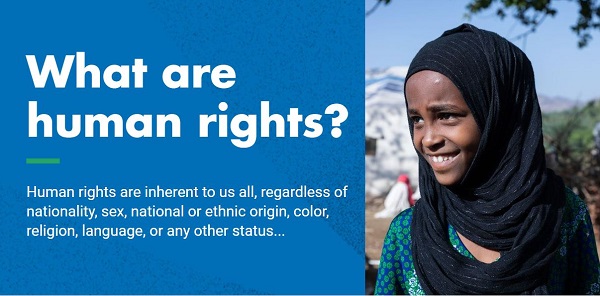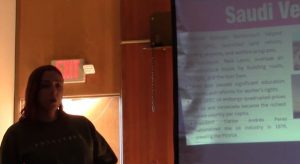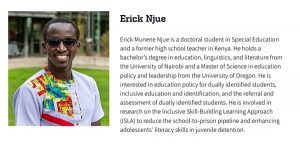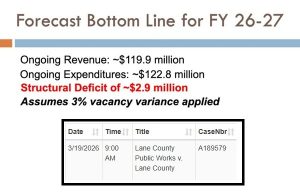UN Human Rights Committee calls on US to end criminalization of homelessness
5 min read
from the National Homelessness Law Center and KEPW News reports
The UN Human Rights Committee on Nov. 3 highlighted serious and ongoing patterns of human rights abuses against people experiencing homelessness and poverty in the United States.
The committee “is concerned about reports of an increase of state and local laws criminalizing homelessness, of violence against homeless persons as well as at the higher risk of premature death that they experience due to homelessness,” according to its Concluding Observations document.
The committee also expressed concern about “the disproportionate impact of homelessness on persons who are marginalized because of their real or perceived sexual orientation or gender identity, persons with disabilities, and racial and ethnic minorities, particularly people of African descent, Indigenous Peoples and persons of Hispanic/Latino origin.”
The Committee reiterated previous recommendations that the United States should:
- Abolish laws and policies criminalizing homelessness at all levels, and adopt legislative and other measures that protect the human rights of homeless people;
- Offer financial and legal incentives to decriminalize homelessness, including by conditioning or withdrawing funding from state and local authorities that criminalize homelessness;
- Intensify efforts to find solutions for the homeless, in accordance with human rights standards, including by redirecting funding from criminal justice responses towards adequate housing and shelter programs;
- Review criminal records policies and practices that can lead to homelessness.
The UN committee issued findings after examining the U.S. implementation of the International Covenant on Civil and Political Rights during the recent session. Five other countries were also examined: Iran, Kuwait, Korea, Trinidad and Tobago, and Venezuela.
The 17-page Concluding Observations document detailed 31 principal matters of concern. In addition to “Criminalization of homelessness,” these included: Domestic implementation of the Covenant; National human rights institution; Accountability for past human rights violations; Hate crimes and hate speech; Racial profiling; Racial disparities in the criminal justice system; Discrimination on the basis of nationality; Gender equality; Violence against women; Missing and murdered indigenous women and girls; Discrimination based on sexual orientation and gender identity; Maternal mortality, voluntary termination of pregnancy and sexual and reproductive rights; Death penalty; Killings using armed drones; Gun violence; Excessive use of force by law enforcement officials; Climate change and the right to life; Prohibition of torture; Solitary confinement; Life imprisonment without parole; Detainees at Guantánamo Bay; Elimination of slavery, trafficking in persons and forced labor; Children in migration; Treatment of aliens, including refugees and asylum-seekers; Right to privacy; Freedom of expression; Freedom of assembly; Rights of the child; Voting rights; and the Rights of Indigenous Peoples.
The National Homelessness Law Center said that the human rights abuses laid out in the report are not surprising, because they and their partners see these abuses play out daily:
- The National Park Service evicted over 50 people from the McPherson encampment community in Washington, DC;
- Federal police officers shot and paralyzed a man in Boise, Idaho while destroying his encampment;
- The murders of people experiencing homelessness, including Jordan Neely, an unhoused person with a history of severe health issues, who was choked to death by a vigilante in a New York City subway car;
- New York City’s increased criminalization of homelessness, including sweeps of encampments and forced removal of unhoused persons by members of law enforcement;
- Officials in Norristown, PA threatened encampment residents with eviction despite the county shutting down its only shelter facility;
- States introduce template legislation from the Cicero Institute to criminalize unhoused persons and subject unhoused persons with mental health disabilities to forced treatment plans.
Moreover, the Law Center knows that these examples of criminalization are just a small illustration of the lived reality faced by the over 500,000 people experiencing homelessness and the estimated 38 million people living in poverty in the United States.
Right here in Eugene, the local city government has established park rules that apply to over 5,000 acres of public land in the city. The Civil Liberties Defense Center is currently challenging four park rules in federal court, saying that they allow police officers and others to punish speech and conduct—protected by the First Amendment—through a range of onerous penalties. Those include a fine of up to $500, up to 30 days in jail, and an order excluding the person from the park areas, where many people seek temporary rest and respite.
The National Homelessness Law Center calls on President Biden, Congress, and state and local leaders to not only address the treaty violations outlined by the United Nations, but to also address the underlying cause of these abuses—the persistent and severe lack of housing that is affordable and accessible to low- and no-income households.
The Law Center thanks the Committee for hearing from our staff member Siya Hegde, a human rights lawyer, who gave powerful remarks before its 17-member expert body in Geneva.
Siya says that the “report is a dire indictment on United States government’s continued failure to meet the commitments outlined in a critical body of international law, as well as its ongoing failure to ensure that everybody has the housing they need to thrive. We are deeply concerned by the use of federal and local police forces to criminalize homelessness. To fulfill the obligations laid out in the Covenant, the U.S. government’s approach to solving homelessness must focus away from systems and policies that harm our unhoused neighbors and towards the true solution to homelessness: safe, affordable, and dignified housing.”
In addition, we are pleased that the Committee’s recommendations were informed by a shadow report jointly authored by the Law Center and the University of Miami School of Law’s Human Rights Clinic.
David Peery, an advocate with lived experience of homelessness and the executive director of the Miami Coalition to Advance Racial Equity, who presented in Geneva on Miami’s camping and food sharing bans and organizationally endorsed the joint shadow report, says that this report must compel all levels of government to stop the criminalization of homelessness.
Peery states: “Laws that criminalize homelessness are expensive, and a waste of taxpayer dollars. It costs nearly twice as much to incarcerate someone rather than house them with case management services. These laws are disproportionately enforced against people of color, who already disproportionally represented in the homeless population. In short, making it illegal to be homeless is an expensive way to make homelessness worse. We need housing, not handcuffs.”
Another person testifying Oct. 17 said efforts by mayors around the country to deal with homelessness were hampered by the complexities of the federal bureaucracy and attempts to pass state legislation effectively criminalizing homelessness. However, mayors were increasingly trying to work with housing authorities and private partners to develop affordable housing initiatives, and they were also taking steps to centralize housing services and invest in innovative solutions such as what were known as “tiny houses.”
Another of the 31 principal matters of concern in the Concluding Observations document was titled “National human rights institution.” That item called on the United States to establish “an independent national human rights institution…to ensure implementation of the Covenant and monitor compliance with its provisions at the federal, state, local and territorial levels.”
The National Homelessness Law Center’s vision is to cultivate a society where every person can live with dignity and enjoy their basic human rights, including the right to affordable, quality, and safe housing, and its mission is to fearlessly advance federal, state and local policies to prevent and end homelessness while fiercely defending the rights of all unhoused persons.







